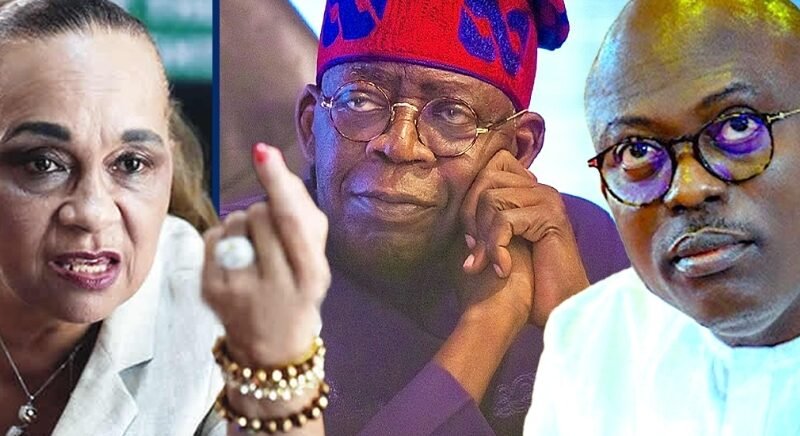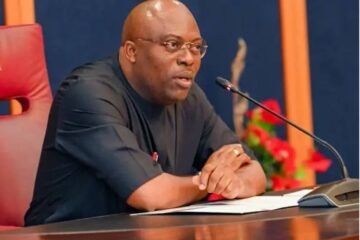LOCUS STANDI AND THE RIVERS STATE EMERGENCY RULE CASE: A Review Of Justice Omotosho’s Decision In Briggs & ORS v. President Of Nigeria & ORS
Recently, I was present at the Federal High Court, Abuja, when Hon. Justice James Omotosho delivered judgment in the suit challenging President Bola Ahmed Tinubu, GCFR, over the declaration of a state of emergency in Rivers State and the dissolution of its elected structures. The plaintiffs had approached the court seeking judicial review of the President’s action.
In that decision, the Court held that the plaintiffs lacked the locus standi to institute the suit. I had earlier written a brief report of that case, which was widely published in the media, and I thereafter promised to provide a detailed review upon obtaining the Certified True Copy (CTC) of the judgment. Having now obtained the judgment, this review focuses exclusively on one central issue – whether the plaintiffs possessed the requisite locus standi to bring the action.
Another important issue, whether the Federal High Court had jurisdiction to entertain the suit, was also considered and decided in the negative. However, that jurisdictional question will be addressed fully in a subsequent review.


The principle of locus standi, or the right of a person to bring an action before a court, has travelled a long and inconsistent path in Nigerian judicial history.
In Olawoyin v. Attorney-General of Northern Nigeria, the Federal Supreme Court adopted a strict interpretation of standing, holding that the plaintiff must show a personal interest in the subject matter of the suit that is directly affected. This conservative approach was reaffirmed in the landmark case of Abraham Adesanya v. President of the Federal Republic of Nigeria, where the Supreme Court, per Fatayi-Williams, CJN, held that Senator Adesanya lacked the sufficient personal interest to challenge the appointment of the Chairman of the Federal Electoral Commission. The Court declared that courts are not constituted to determine hypothetical or academic questions.
This restrictive approach drew severe criticism for frustrating public accountability and preventing citizens from challenging unconstitutional acts of government. However, the tide appeared to shift with the decision in Fawehinmi v. Akilu & Togun, where the Supreme Court, in a bold move, broadened the concept of standing. The Court held that a private citizen could seek judicial intervention in matters involving grave public wrongs when the state failed to act.
The expansion continued in Centre for Oil Pollution Watch v. NNPC, where the Supreme Court recognized that environmental protection and other public concerns warranted a liberal approach to standing, particularly when public officers or institutions fail in their duties. This case was widely regarded as Nigeria’s closest embrace of the public interest model of standing – satisfying best international practices on the concept.
Unfortunately, the decision in Fawehinmi v. Okonjo-Iweala (2025) marked a regression. In that case, the Supreme Court returned to the stringent doctrine of sufficient personal interest, holding that Fawehinmi lacked locus to challenge the appointment, dollar salary payment of the Finance Minister and other alleged breaches of constitutional procedure. The Court emphasized that a litigant must show direct injury or personal loss distinct from that of the general public.
Justice Omotosho, in the Rivers State Emergency Rule Case, relied heavily on this recent precedent, concluding that the plaintiffs had not demonstrated any personal interest sufficient to clothe them with locus standi. The Court reasoned that, while the plaintiffs may have been motivated by patriotic concerns, they had not shown any direct or special injury suffered beyond that experienced by the general public as a result of the emergency proclamation.
By anchoring his decision on the apex court’s precedent, Justice Omotosho acted within the boundaries of judicial propriety. The doctrine of stare decisis mandates lower courts to follow the decisions of superior courts, even if such decisions appear unprogressive. Thus, while one may disagree with the ultimate outcome, it cannot be denied that the judgment rests on a solid legal foundation.
This oscillation in judicial interpretation has not been confined to the Supreme Court alone. For instance, in Edun v. Governor of Edo State & Anor, one of our strong advocates in the public interest litigation community had his case dismissed on the grounds that he lacked locus standi to challenge government action. Similarly, in Monday Ubani v. The President of the Federal Republic of Nigeria & Ors, where I, alongside Inibehe Effiong and SERAP, challenged the Federal Government’s ban on Twitter (now X), the Federal High Court in Lagos held that only Twitter had the locus standi to sue, thereby dismissing the action for want of standing.
Ironically, in another case – Ubani & Anor v. The National Assembly, the same Federal High Court upheld our right to challenge certain actions of the National Assembly, affirming that we possessed sufficient interest as citizens to question legislative conduct that threatened constitutional order. These contrasting outcomes aptly demonstrate the doctrinal inconsistency and judicial uncertainty surrounding the application of locus standi in Nigeria.
The practical implication of this ruling and similar cases is that Nigerian courts are once again operating under the narrow confines of Abraham Adesanya’s restrictive formulation of locus standi. Recent lower court decisions, including Justice Omotosho’s, demonstrate a judicial retreat from the more liberal posture previously hinted at in Centre for Oil Pollution Watch v. NNPC.
The present legal position in Nigeria is that a litigant must demonstrate a sufficient personal interest, often a tangible injury or potential damage distinct from that of the general public, before a court will entertain a public interest case. This approach has serious implications for accountability and the enforcement of constitutional and environmental rights, as it restricts access to justice for concerned citizens and civic groups.
My latest thesis on Public Interest and Locus Standi argues for a legislative intervention to cure this doctrinal confusion. Countries such as South Africa, Kenya, and India have enacted constitutional and statutory provisions defining who qualifies as a public interest litigant and under what conditions they may approach the court. In those jurisdictions, courts have become veritable instruments for promoting transparency, good governance, and constitutionalism.
Nigeria can no longer afford to remain trapped in the technical rigidity of Abraham Adesanya and Fawehinmi v. Okonjo-Iweala. A clear legislative or constitutional reform is required to harmonize the judicial approach and codify the circumstances under which citizens and civic organizations can challenge unlawful governmental acts. Such reform would ensure that the courts once again become accessible arenas for justice, accountability, and the rule of law.
In that regard, the work of public interest litigation in Nigeria would have been truly accomplished, transforming it from a theoretical ideal into a functional mechanism for justice and good governance.
Dr. Monday Onyekachi Ubani, SAN
Legal Practitioner & Policy Analyst





